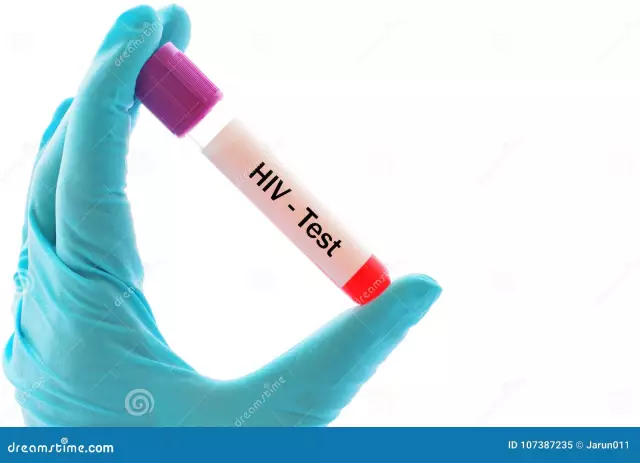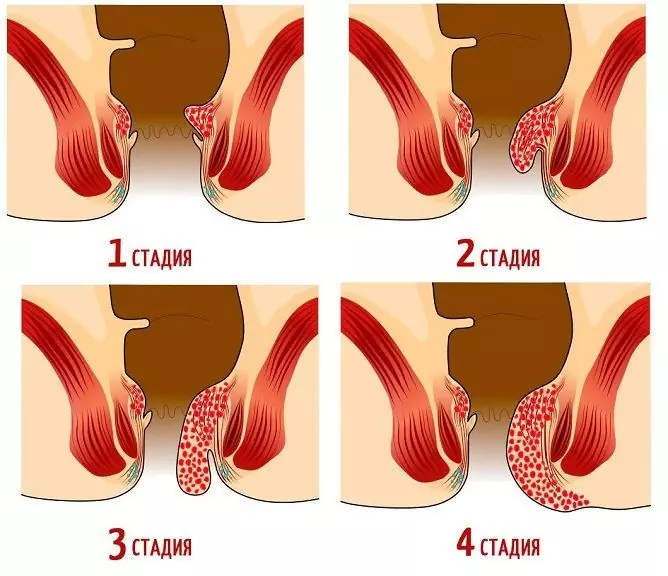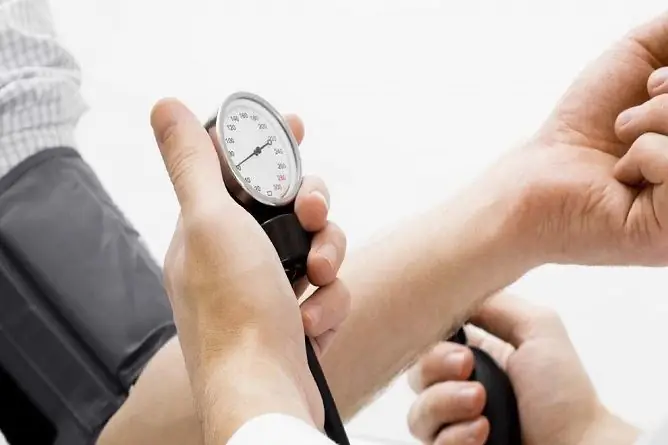- Author Rachel Wainwright wainwright@abchealthonline.com.
- Public 2023-12-15 07:39.
- Last modified 2025-11-02 20:14.
Blood test

The main method for diagnosing diseases of organs responsible for the process of hematopoiesis is a blood test. Blood carries oxygen, nutrients, hormones, poisons and toxins, it contains immune bodies and important enzymes. Therefore, the results of a blood test are of great importance in studying the state of the body as a whole, and the tests must be carried out simultaneously with the study of urine, measuring the temperature.
Depending on the goal pursued by diagnostic doctors, there are various methods of blood testing:
- Morphological. It consists in counting platelets, erythrocytes and leukocytes and their qualitative study. The material for morphological research is usually peripheral blood taken from a finger, earlobe. In some cases, the punctate of the lymph node or bone marrow is analyzed.
- Physicochemical and chemical research. It is carried out using biochemical equipment. This is how the level of urea, nitrogen, glucose, bilirubin in the blood is established.
- Bacteriological method of blood testing. Used to detect infections and bacteria in the blood. Bacteriological analysis is carried out before starting antibiotic therapy, otherwise a false result may be obtained. For patients who have a fever on the background of inflammation, blood is taken for analysis either during the period of the rise in temperature, or immediately after it begins to decline.
- Serological blood test. It is considered basic, and it is carried out to diagnose viral, microbial and infectious diseases. Serological blood tests are also carried out during blood transfusions, to determine the blood group, to establish the effectiveness of the vaccination, the source of infection. Serological blood test is indispensable for diagnosing autoimmune diseases. Blood from a vein is used as a material, it is taken on an empty stomach.
Serum test
Separately, an analysis of blood serum is isolated - plasma processed by the method of natural coagulation or with the help of calcium ions, as a result of which colorless proteins (fibrinogens) are removed from the blood. The study of blood serum is valuable for the reason that, due to the absence of fibrinogen, the stability of the blood increases, but at the same time most of the antibodies in it remain.

Plasma is processed and blood serum is examined if it is necessary to detect infections, to assess the effectiveness of the vaccination, to determine the biochemical composition of the blood.
Blood test for HIV
An HIV test is carried out to detect this virus and antibodies to it.
A blood test for HIV is recommended to be carried out during hospitalization, preparation for surgery, planning a pregnancy, after accidental unprotected sexual intercourse, with a sharp decrease in weight, after injections with non-sterile needles.
The result of a blood test for the immunodeficiency virus by PCR can indicate HIV infection as early as two or three weeks after infection. This blood test method is considered the most reliable in this case. You can also conduct an enzyme-linked immunosorbent assay, but it shows the antibodies already formed in response to the virus and an objective blood test result can be obtained only one and a half or even three months after infection.
Blood for analysis is taken on an empty stomach: at least eight hours should pass after the last meal. Material for analysis is taken with a sterile syringe from a vein on the inside of the elbow, in a volume of 5 ml.
The result can be obtained 2-10 days after donating blood, the doctor must inform the patient anonymously and, if necessary, issue a referral for treatment.
Found a mistake in the text? Select it and press Ctrl + Enter.






